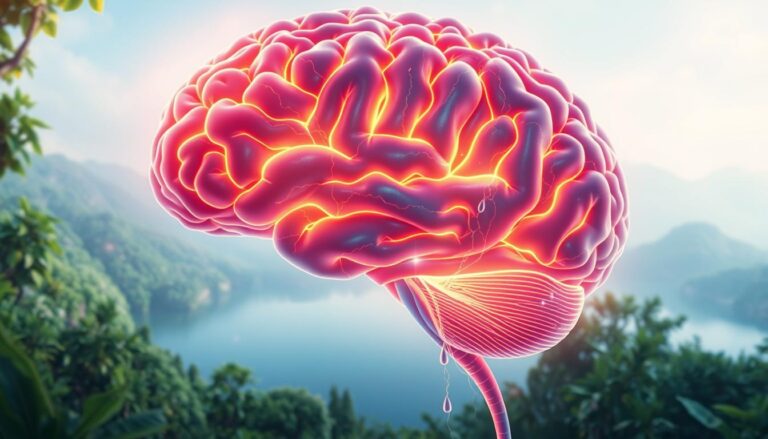The mineral iron is fundamental to human function. The generation of red blood cells depends on it. These cells transport oxygen throughout the body, which keeps us energetic and ensures that our organs work as they should.
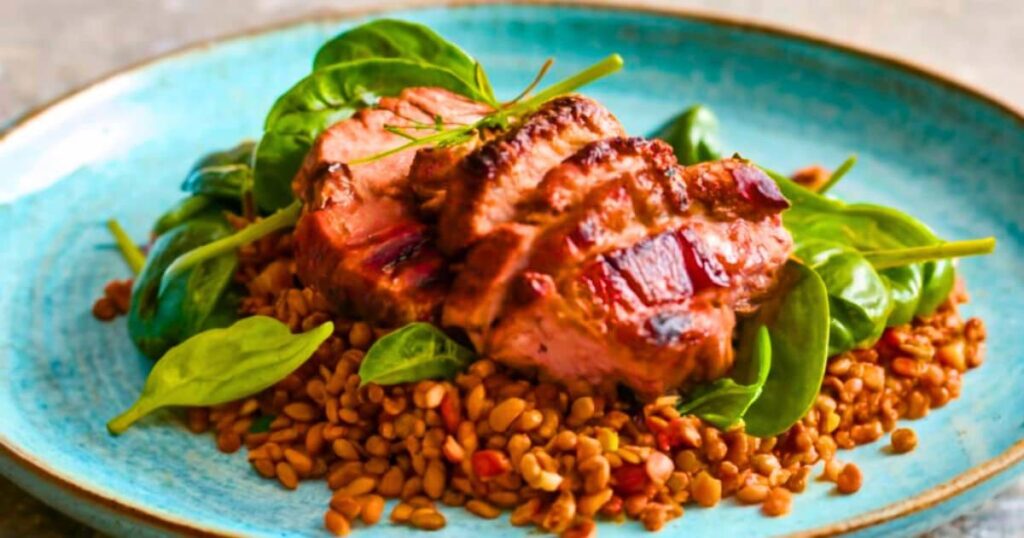
Iron deficiency, on the other hand, is a common problem, particularly for women and men who have periods. This is where iron supplements may be helpful, but the key to getting the most out of them is taking them at the right time.
Optimal iron supplementation is within your reach with the knowledge you’ll get from this article’s exploration of the science behind the “iron hour” and other intriguing aspects of iron absorption.
Understanding Iron Absorption: A Fine Art
Iron has a complicated connection with our bodies. The absorption of iron is a highly controlled process, in contrast to other minerals that are easily absorbed from meals. As the principal organ for absorbing nutrients, the small intestine also plays the role of a gatekeeper, strictly regulating the quantity of iron that may enter the circulation.
Several variables impact iron absorption, and recognizing these aspects is crucial to determining the ideal time to take your supplement. Here’s a breakdown of the important players:
Enhancers:
Vitamin C, found in citrus foods and liquids, improves iron absorption. It helps convert ferric iron (the less absorbable form) into ferrous iron (the more absorbable form). Vitamin C also helps to maintain the integrity of iron molecules, preventing them from oxidizing and losing their ability to be absorbed.
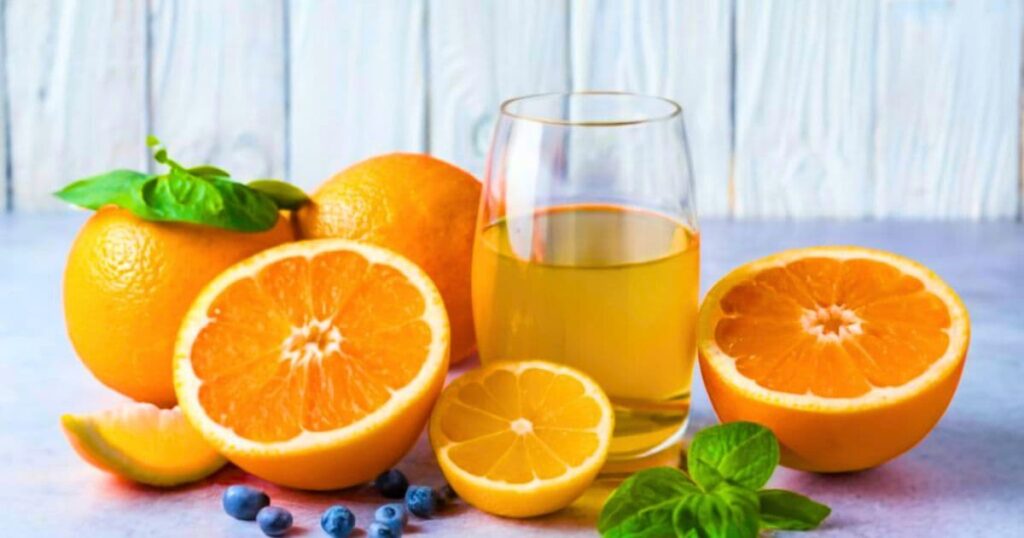
Including vitamin C-rich foods in your diet, such as oranges, strawberries, and bell peppers, can greatly enhance the absorption of iron from plant-based sources like beans, lentils, and spinach. This is especially important for individuals following a vegetarian or vegan diet, as plant-based iron is not as readily absorbed as iron from animal sources.
Inhibitors:
Certain chemicals might limit iron absorption. These include calcium (found in dairy products), tannins (present in coffee, tea, and red wine), and phytates (rich in whole grains, legumes, and nuts).
It is important to be mindful of these inhibitors when consuming iron-rich foods to ensure optimal absorption. To counteract the effects of these inhibitors, you can consume vitamin C-rich foods like citrus fruits or bell peppers, which can help enhance iron absorption.
Additionally, cooking foods high in phytates can also help reduce their inhibitory effects on iron absorption. By being aware of these inhibitors and taking steps to mitigate their impact, you can ensure that your body is receiving the iron it needs to function properly.
The Iron Hour: Taking Advantage of Peak Absorption
The optimal time for iron supplements is on a empty stomach, often 1-2 hours before a meal or 2 hours after a meal. This enables maximum absorption before dietary components like calcium and phytates interfere.
Taking iron supplements with vitamin C can also help with absorption, as it aids in the conversion of iron into a more easily absorbable form. It is important to follow the recommended dosage provided by a healthcare professional to prevent iron toxicity. Additionally, it is advisable to avoid taking iron supplements with coffee, tea, or calcium-rich foods as they can inhibit iron absorption.
Here’s why this technique works:
Reduced competition:
With an empty stomach, there are fewer dietary inhibitors competing for absorption. Iron has a clearer way to reach circulation. This can be particularly beneficial for individuals with conditions that hinder iron absorption, such as celiac disease or inflammatory bowel disease.
By consuming iron-rich foods on an empty stomach, these individuals may have an increased chance of meeting their daily iron needs and avoiding deficiencies. Additionally, reduced competition for absorption can also improve the bioavailability of other essential nutrients, leading to overall better nutrient absorption and utilization in the body.
Morning advantage:
Studies reveal that iron absorption can be somewhat greater in the morning compared to the evening. This might be related to hormonal variations or the body’s natural cycle. Getting a head start on your iron intake in the morning can help boost energy levels throughout the day.
Including iron-rich foods like spinach, beans, and fortified cereals in your breakfast can ensure you’re meeting your daily needs. Plus, starting the day with a nutrient-dense meal can set a healthy tone for the rest of your meals.
Finding Your Ideal Iron Hour: What Works for You?
While taking iron on an empty stomach is typically suggested, it’s not a one-size-fits-all method. Iron supplements may occasionally induce adverse effects, including constipation, nausea, or stomach cramps.
If these concerns develop, explore these alternatives: taking the supplement with food or splitting the dose throughout the day. It is important to consult with a healthcare provider before making any changes to your iron supplementation routine, as they can provide personalized recommendations based on your individual needs and health status.
Additionally, incorporating iron-rich foods into your diet can help boost your iron levels naturally and support overall health. Remember to prioritize your well-being and listen to your body’s signals when it comes to managing your iron intake.
- Take iron with food. Low-dose iron supplements could be better tolerated with meals. However, avoid dairy products and calcium-rich meals during the same meal.
Split the dosage: If a large dose is essential, dividing it into two smaller doses, one in the morning and one in the evening, could enhance tolerance.
Consider mild iron formulations: Some iron supplements are friendlier on the stomach, such as iron bisglycinate or iron polysaccharide complex. Discuss these alternatives with your doctor or pharmacist.
Optimizing Your Iron Supplement Routine: Beyond Timing
While timing is key, here are other strategies to improve iron absorption and reduce adverse effects:
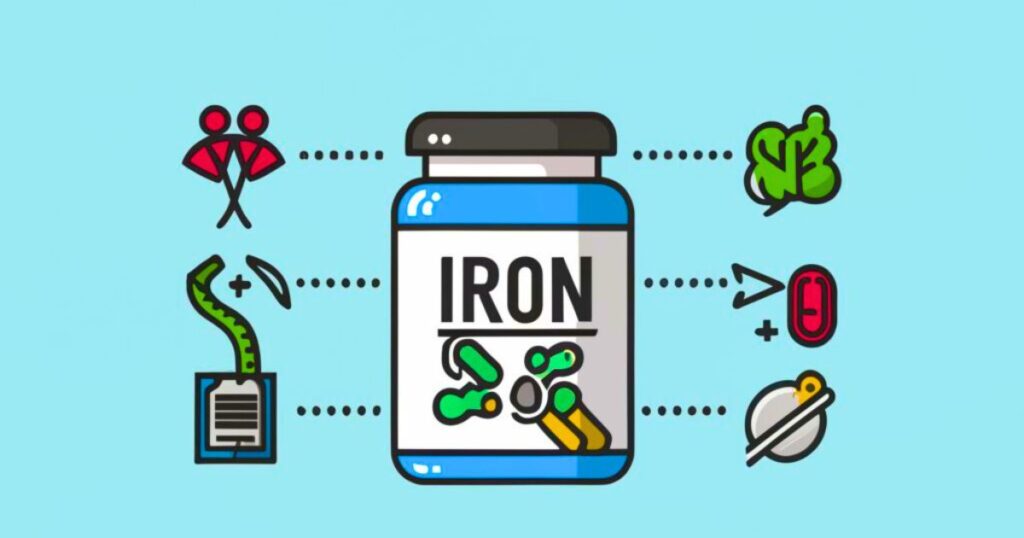
Pair it with vitamin C. Vitamin C is your iron absorption companion. Take your iron supplement with a glass of orange juice or a similar vitamin C-rich beverage.
Space out your iron and other medications. Certain drugs, such as antacids and antibiotics, may interfere with iron absorption. Discuss the optimal time with your doctor.
Focus on iron-rich foods. Incorporate iron-rich foods like red meat, chicken, fish, beans, lentils, and dark leafy greens into your diet. Pairing these items with vitamin C sources significantly increases absorption
Listen to your body: Pay attention to how you feel after taking iron supplements. If adverse effects continue, see your doctor to discuss alternate choices.
Understanding Iron Deficiency: When to Supplement
Iron deficiency is a condition when your body doesn’t have enough iron for proper functioning. It may lead to weariness, weakness, shortness of breath, and a pale complexion.
Here are some frequent reasons for iron deficiency: poor diet lacking in iron-rich foods such as red meat, poultry, and leafy greens, chronic blood loss from conditions like ulcers or heavy menstrual periods, inability to absorb iron properly due to certain medical conditions like celiac disease or gastric bypass surgery. If you suspect you may have iron deficiency, it’s important to see a healthcare provider for proper diagnosis and treatment.
Blood loss: Heavy menstrual cycles, blood donations, or internal bleeding may reduce iron storage.
* Dietary factors: A vegetarian or vegan diet may lack appropriate iron sources.
* Certain medical conditions: Inflammatory bowel disease and celiac disease might impede iron absorption.
Diagnosing Iron Deficiency: A Blood Test is Key
Iron deficiency is detected with a simple blood test that evaluates ferritin levels (iron reserves) and hemoglobin (the iron-carrying protein in red blood cells). Never self-diagnose or self-treat. using iron supplements.
Excessive iron consumption might be harmful; therefore, it’s necessary to visit your doctor to establish the proper course of action. Your doctor will be able to determine the underlying cause of your iron deficiency and recommend the appropriate treatment plan.
This may include dietary changes, iron supplements, or further testing to rule out any other health conditions. It’s important to follow your doctor’s guidance to effectively manage your iron levels and prevent any potential complications. Remember, seeking professional medical advice is always the safest and most effective way to address any health concerns.
FAQs: Your Iron Supplement Questions Answered
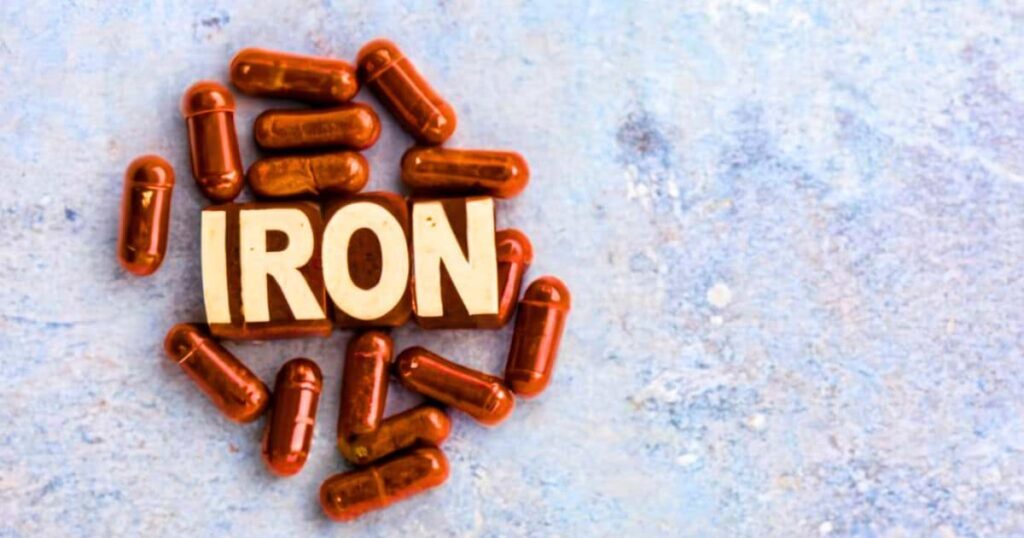
1. Can I take iron supplements with coffee or tea?
No, it’s advisable to avoid coffee, tea, and other tannin-rich liquids around the time you take your iron supplement. Tannins may drastically limit iron absorption. Opt for water or a vitamin C-rich drink instead.
2. Should I take a multivitamin with iron?
Multivitamins generally include a lower dosage of iron. This can be useful if you have a minor iron deficiency or are taking iron for prophylactic purposes. However, if you have a confirmed iron deficiency needing greater dosages, a supplemental iron supplement can be recommended. Discuss your unique requirements with your doctor.
3. How long does it take for iron supplements to work?
It might take many weeks or even months to experience the full benefits of iron supplementation. Don’t become discouraged; persist with your program and check your progress with frequent blood tests as prescribed by your doctor.
4. Are there any adverse effects of using iron supplements for lengthy periods?
Long-term, high-dose iron supplementation might induce constipation or stomach distress. It’s vital to follow your doctor’s suggested dose and handle any persistent adverse effects.
5. Can iron supplements discolor my teeth?
Liquid iron supplements, particularly those containing ferrous sulfate, may discolor teeth. If this is a problem, examine other formulations, such as capsules or tablets, with your doctor. Rinsing your mouth with water after taking an iron supplement could also help reduce stains.
6. I’m pregnant. When should I take iron supplements?
Iron demands rise dramatically during pregnancy. Your doctor will likely offer prenatal vitamins containing iron or a separate iron supplement. The ideal time for iron during pregnancy may vary, so follow your doctor’s exact recommendations.
7. Are there any interactions between iron supplements and other supplements?
Yes, iron may interact with several other supplements, including calcium and zinc. Discuss your whole supplement regimen with your doctor to ensure maximum absorption and minimize any interactions.
8. What if I forget to take my iron supplement?
Don’t take a double dosage to compensate for a missing dose. Simply continue your usual schedule the next time you’re due to take it.
9. I have a chronic health problem. Should I be worried about iron deficiency?
Certain chronic health problems, such as inflammatory bowel disease or celiac disease, might impact iron absorption. If you have a pre-existing ailment, discuss iron levels with your doctor and be tested for iron deficiency if required.
10. How can I boost my iron storage with food alone?
While iron supplements are a frequent remedy for iron insufficiency, dietary modifications may also play a major role. Focus on integrating iron-rich foods like red meat, chicken, fish, beans, lentils, and dark leafy greens into your diet. Pair these items with vitamin C sources like citrus fruits or drinks to increase absorption.
Remember, this material is designed for general understanding and should not be a replacement for specialized medical advice. Always check with your doctor before taking any new supplements or if you have any concerns about iron deficiency.



